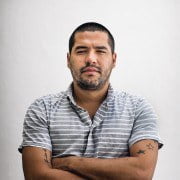El Salvador is one of the countries in Central America whose inhabitants are feeling more and more pressured to leave the country as a result of increasing violence. In Mexico, asylum applications written by refugees from El Salvador nearly quadrupled between 2013 and 2015. A large proportion of those refugees later try to make their way into the United States. However, the situation for refugees is particularly dangerous in Mexico. Last year, Amnesty International warned that Mexico has become a death trap for migrants. The UNHCR is mainly worried about the increasing number of unaccompanied children and women, who have fled from unemployment, poverty, sexual and gender-orientated violence, forced membership of criminal gangs and the threat of murder. The criminal structures of youth gangs are solidified to such an extent that the government has had to call a state of emergency in many prisons all over the country. El Salvador, which has only 6 million inhabitants, has one of the highest national murder rates worldwide – in 2015, the average per year was at 18 cases of murder per day.
Participating author: Juan José Martínez d’Aubuisson

The anthropologist and author Juan José Martinez d’Aubuisson was born in El Salvador in 1986. He has been researching the phenomenon of gang criminality and its effects in his home country for nearly ten years. He has written literary reports for multiple kinds of media. In 2010, his book “Las mujeres que nadie amó” (Engl.: The Women No One Loved) was published. His latest book, the non-fiction work entitled “Ver, oír y callar” (Engl.: See, Hear and Being Silent), in which he reports on the infamous gang Mara Salvatrucha and its members, was published in 2015.
